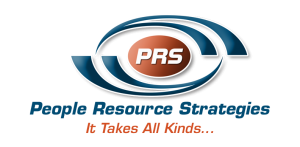EMOTIONS! ISN’T THAT TOO PERSONAL?
by Lena Bodin, MBA, SPHR (May 2021)
Emotions are not personal when they affect the work environment and have to be managed.

When I worked as Head of HR, one day my Recruiter came in distraught over dealing with our bookkeeper over some unpaid bills. The bookkeeper was having her “mood” something that happened often, and on those days, no one would go near her or ask her to do anything! This was not productive at all and yet everyone knew to stay away from her on those days. Her boss didn’t know how to deal with the situation.
We can all probably think of similar situations that we all face from time to time in business where someone’s behavior creates a dysfunctional work environment.
Every behavior is influenced by our emotions. Rivalries and political battles in the boardroom; personality conflicts in work teams; or individual attitudes and negative behavior can impact workplace morale, not to mention productivity. At some point in our business lives, we have all experienced displays of emotional behavior which have broken down lines of communication and made us uncomfortable.
The concept of Emotional Intelligence is not New…
In 1998, when the Harvard Business Review published an article on Emotional Intelligence (“EI”), the CEO of Johnson and Johnson was so impressed by the article that he made copies and had it distributed to his top executives worldwide and implemented programs to enhance EI in J&J executives. Similarly, other companies, also recognizing the concept of EI and the importance of soft skills development in their people, have implemented programs to address this in their management staff.
Research shows that EI can be improved with proper training and coaching by enhancing individual self-awareness and control social awareness and self-motivation.
As business leaders, we cannot afford not to consider some of the implications of emotions in the workplace: it impacts productivity and morale, and it impacts how our customers view us and whether they continue to do business with us.
Then, what about IQ?
How often have we heard the lament “… but he was such a smart guy!” when an individual fails in business or in their personal life. Why is it that “smarts” wasn’t enough to ensure success in an individual, especially when others had so much hope in that person’s abilities to succeed?
We have been conditioned to believe that a person’s intellectual intelligence (measured as IQ) is the greatest predictor of success. Schools often use IQ test results to choose children for gifted programs and advanced courses. Some companies even use IQ as a criterion for hiring employees and will seek out Ivy League graduates with high GPA scores. Yet, the emotional indicators have often been neglected. Academic programs are generally geared towards developing intellect while leaving emotional development up to chance. It wasn’t until the nineties that University MBA curriculum began to incorporate leadership and other soft skills in response to the needs of the business community.
According to Daniel Goleman (Working with Emotional Intelligence. New York: Bantam Books, 1998), “When IQ test scores are correlated with how well people perform in their careers, the highest estimate of how much difference IQ accounts for is about 25 percent. A careful analysis, though suggests a more accurate figure may be no higher than 10 percent, and perhaps as low a 4 percent.”
Inability to handle emotions can put even the smartest person in a situation where their decision-making capacity becomes impaired. Emotional irrationality can infect an entire organization and often starts at the top. Based on the behavior of leaders in an organization, others assume similar behaviors which ultimately form the culture in the organization. The CEO who is yelling and screaming will, almost invariably, instill that behavior in his rank-and-file employees.
What Does This All Mean?
We all come together at work from diverse backgrounds with diverse skill sets. Each of us have our own set of personalities which may complement or clash in the workplace. Coaching or helping individuals develop better self-awareness and social-awareness skills can become effective forging better work relationships and enhance the work environment.
For business leaders, the time to act is always. Enhancing emotional competencies can help increase performance in the workplace, maintain satisfied customers, and ultimately, add to the bottom-line.
Reprints by permission only.
For more information, please contact Lena Bodin at 845-362-3445 or email her at
lena@4prs.com. Website: www.4prs.com.
*******************
Lena Bodin is the President of People Resource Strategies (“PRS”), a professional consulting firm with twenty years of senior level experience in business operations and human resources. PRS specializes in helping clients achieve bottom-line results through comprehensive programs designed for improving employee performance and organizational effectiveness. She has experience working with Fortune 500 companies in the financial, pharmaceuticals, and service industries. Her human resources experience has been very strategic in nature, working with start-ups and emerging companies, helping them align human resources with their strategic business plans. Ms. Bodin has an MBA in Organizational Behavior and a BBA in Human Resource Management, both from Pace University, New York.



Emotions! Isn’t That Too Personal?
Making Sense of Your Sick Policy
The Importance of Diversity and Inclusion…